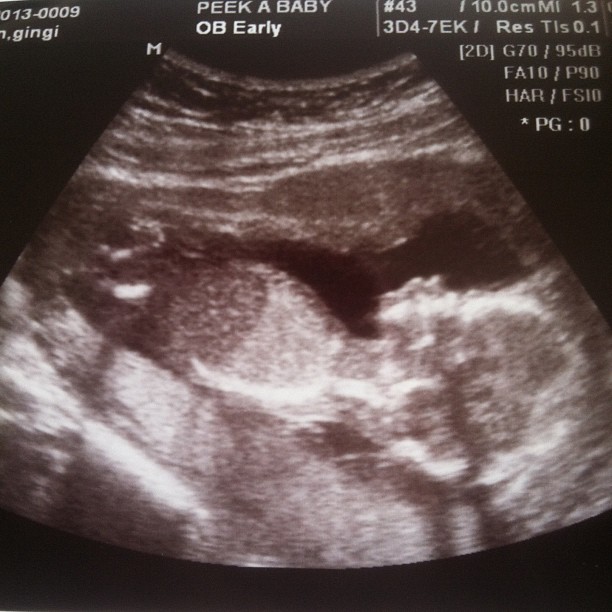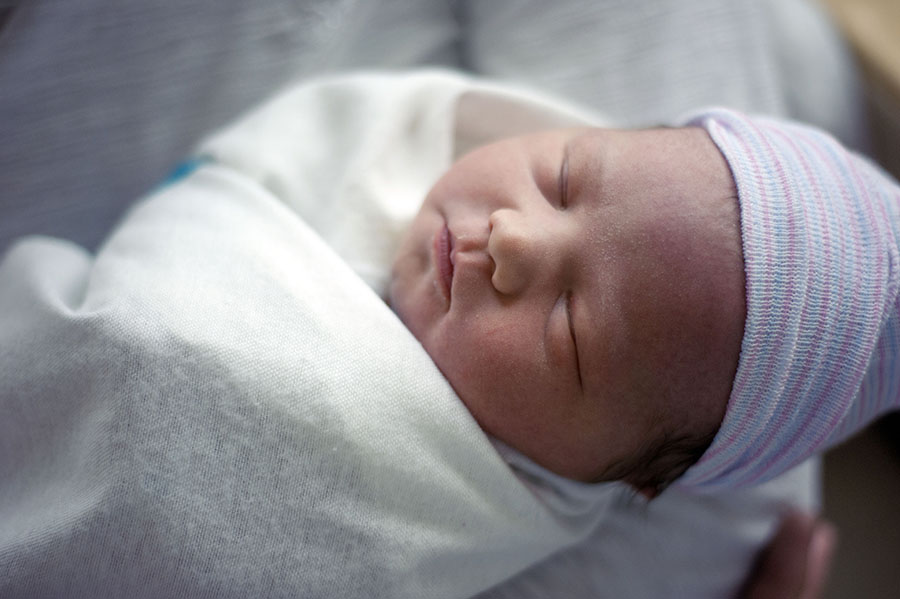I attended my first Visalia Birth Network meeting this past Saturday, accompanied by the lovely Miss Amber, aka The Crafty Book Goddess. (Gotta have my emotional support when it comes to the imminent disfigurement of my hoo-haw.) I was referred to the group by my photography friend Denise of Tree of Life Birth Photography and Doula Services.
The Visalia Birth Network is made up of a group of pregnancy / medical professionals, and on the 2nd Saturday of every month they host public educational meet-ups that involve perinatal topics relevant to the community. This month was “I Just Don’t Want a C-Section” – an interactive lecture with the top 10 tips for preventative measures to avoid a primary cesarean birth.
Now I am not as terrified at the prospect of a cesarean birth the way that some mothers are. I don’t demonize the procedure and I don’t dread it as much as I probably should. But I certainly don’t WANT one either. I’m simply willing to do whatever I must to get Tessa here safely – regardless of my personal comfort and preferences.
I personally think that “natural parenting” is taking a negative trend towards “mother empowerment” and “mothers comfort” to the point of detriment to the infants safety. When it comes to childbirth, my daughter is my priority. My world revolves around her safe delivery.
So whether that means Tessa gets to wreck my lady hole or wreck my bikini line makes little difference to me in the grand scheme of things.
That being said, I really do not want to have an unnecessary C-section when it seems that doctors are so knife happy these days. I’d like to have as natural a birth as humanly possible, including opting out of pain medications and other unnecessary medical interventions. Thus far I have been willfully ignorant of the intricacies of hospital childbirth (simply because I’m so terrified of the delivery, to be perfectly honest), so this meeting very much applied to me… because with roughly 100 days till D-Day, I need to start facing reality and prepare myself for the inevitable bloody, painful, soul-wrenching yet beautifully miraculous arrival of Tessa Connie-Sue Freeman.
Here are the Visalia Birth Networks Top 10 Tips for Preventative Measures to Avoid a Primary Cesarean Birth:
1. Get educated.
Read books on natural childbirth, watch educational videos and attend educational lectures, take childbirth classes, and get a general understanding of the various procedures involved in delivery and their risks and advantages.
2. Push only when your body tells you to.
Coached pushing, and pushing when you are not ready to not only leads to premature exhaustion and fatigue, but can increase your risk of tearing and / or receiving an unnecessary episiotomy.
3. Avoid vaginal exams.
Frequent vaginal exams to check for dilation can increase your chances of infection.
4. Consider intermittent fetal monitoring instead of continuous fetal monitoring.
Being hooked up to all of the cords and wires for continuous fetal monitoring requires that you be immobile for long periods of time. Laying on your back in a hospital bed greatly increases your chances of having a C-Section. (This is the only point that gives me room for pause, and I would like to research it a bit further. Some studies cite lower risks of fetal death and mental retardation with continuous fetal monitoring vs. intermittent. But likewise, it is not uncommon to get false readings from continuous monitoring that result in unnecessary interventions, such as vacuum or forcep extraction of the child, which runs its own risks of complications for your child.)
5. Stay upright and active during labor.
Movement helps your baby get to where she needs to be for delivery. Laying on your back puts pressure on your sacrum and closes the birth canal, while constant movement and the natural forces of gravity (not to mention the weight of the babies head on the cervix) opens it.
Statistically speaking, women who hire a doula have a greatly reduced risk of succumbing to pain medications and c-sections in natural labor and childbirth. Not to mention they are a great help and calm in the storm to a mother (and father!) in the midst of delivering.
7. Explore non-pharmaceutical relief first.
Before resorting right to pain medications, try alternative and non-invasive approaches first – massage, heat or cold, ambiance in lighting or music, changing positions, walking, etc.
8. Labor at home as long as possible.
The longer you are laboring at a hospital, the greater the chance that doctors will insist on taking drugs to speed up the rate of delivery so they can get home in time for the newest episode of Doctor Who that they TiVoed.
9. Allow your body to labor on its own naturally.
If your child is not in distress, avoid inducing or artificially speeding up your labor with pharmaceutical interventions at all costs! Each artificial measure taken (when your child is delivering naturally and not at risk for harm) comes with a wealth of possible negative side-effects.
10. Choose a good care provider.
It naturally follows that a health care provider that puts great emphasis on natural birth will have a higher rate of natural births in their facility. So finding a hospital or birthing center with the lowest rates of c-sections can go a long way toward avoiding having one!
Now these are just the notes that I jotted down during the meeting, and it is by no means exhaustive. I’ve attached some relevant links to articles that elaborate more on the topics mentioned, and if you have any questions I encourage you to contact a medical professional or local birthing group. God knows I’m still researching and asking questions. I have been having a blast hearing from and learning from experienced mommies, so by all means, if your experiences differ (or fall perfectly) into the steps outlined above, share with me! I’d love to hear from fellow mommies! ^_^






I personally don’t think any mother wants to risk her infants safety when wanting to have a positive birth experience. I think that’s why more women I birthing outside of the hospital, because its true when it’s said that doctors are very knife happy, and at the slightest moment they will jump to wanting to do a csection. In today’s medical society they somehow have come to believe that women’s bodies were not made to do this, to birth babies. Far too many times I’ve heard mothers say they were told “her body was too small to push her baby out, she NEEDED to be scheduled for a csection”. This is taboo!
I just read an article the other day that was talking about the number of women dying from Csections, when the csection was actually unnessicary In the first place. But cesctions are no longer looked at as a medical proceeder, it’s accepted as a normal way to “birth” now days. It’s all very sad, really.
I, myself, had a pleasant experience having a hospital birth. But I will be birthing in a birthing center next go around, for a few different reasons. 🙂
Sorry, I just now saw your comment! So did you ever give birth in a birthing center? I am interested in looking more into those!